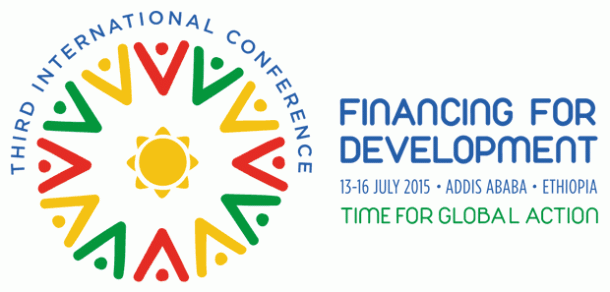by David Steven | Jun 2, 2015 | Articles and Publications, Conflict and security, Global system, Reports
The post-2015 agenda has a clear vision for children: the protection, survival and development of all children to their full potential. Four resonant and ambitious ‘core promises’ to children can be drawn from the child-focused goals and targets.
The core promises are:
- No child should die from a disease we can prevent.
- Every child should have the food needed to grow normally.
- Every child should be able to read and write, and should be numerate.
- No child should live in fear.
These core promises represent minimum levels of wellbeing that children must enjoy if, as adults, they are to contribute to a sustainable future. This new paper by David Steven sets out an agenda for those working to deliver the most urgent priorities to children (June 2015)
Download Full Report
by David Steven | May 19, 2015 | Articles and Publications, Conflict and security, Global Dashboard, Global system, Reports, UK
Continuing with our work on the Time to Deliver theme, focusing on the core promises that should be made to children, this report explores the potential for the United Kingdom to play a leadership role at the heart of a proposed new global partnership to protect children; using new targets to end abuse, exploitation and all forms of violence against children as the focus for a drive to protect children both within the UK as well as globally, through the UK’s foreign and development policy.
This report was written in collaboration with UNICEF UK and will be used by them to develop the new partnership for children, both in the UK and globally.(May 2015)
Download Full Report
by Alex Evans | Apr 24, 2015 | Economics and development, Influence and networks

A couple of weeks ago, preparations for July’s Financing For Development summit in Addis Ababa passed the 100 days to go mark. Unfortunately, the summit is at this point not on track to meet the high expectations for it. It faces a mutually reinforcing set of problems, including:
- Confusion about the summit’s intended outcomes – with too many issues on the table, and a serious lack of clarity about what success would look like on each;
- A lack of agenda setters – so far only the co-facilitators (Norway and Guyana) are really leading the process, but their room for manoeuvre is constrained by the need for them to remain neutral honest brokers; and
- Insufficient political will – the result of the summit not yet being on heads’ or finance ministers’ radars, as well as it not being a top 2015 priority for civil society.
So what would it take to turn things around and make Addis a success? One of the essentials is a clearer political narrative – one that explains what the summit is for, what’s new this time around (as compared to Monterrey in 2002 or Doha in 2007), what it could achieve, and why high level policymakers, and above all finance ministers, should make the effort to attend. This short note (pdf), produced with colleagues at the NYU Center on International Cooperation, is an attempt to start thinking this through over just a couple of pages – any feedback and suggestions for improvement gratefully received.
More broadly, we also need a harder-edged political strategy. This paper (pdf) – which was circulated earlier this month, and so doesn’t reflect last week’s FFD talks in New York or the IMF / World Bank Spring Meetings – sets out a few ideas. Again, feedback warmly welcome.
(And on the overall SDGs agenda, David Steven and I also just published the latest in our series of What Happens Now? papers taking stock of where the process stands and where it might go next – you can download that here.)
by David Steven | Mar 31, 2015 | Cooperation and coherence, Global Dashboard, Global system
What was once a storm whipped up around the question of whether the world needs 17 sustainable development goals and 169 targets has now degenerated into a tempest about whether it is possible to “conservatively” tweak some of those targets to make them more meaningful and deliverable.
Last week, the poor souls who are responsible for shepherding the post-2015 negotiations (the UN ambassadors of Kenya and Ireland) released a proposal that was intended to show how this could be done.
Sadly, they have made some of the targets better rather than worse, indicating that ‘technical proofing’ – an expert-driven process supposedly stripped of political overtones – is no sure fire way to a better development agenda.
(And who on earth thought it could be? Experts disagree with each other more bitterly than governments do – fortunately they lack armies with which to settle their arguments.)
So here are five ways the tweaked targets are worse than the originals. (more…)
by David Steven | Mar 26, 2015 | Conflict and security, Cooperation and coherence, Economics and development, Global Dashboard, Global system

This afternoon, in New York, the OECD is launching its States of Fragility 2015 report which explores how new sustainable development goals and targets (SDGs) can be implemented in countries and communities that lack the political stability and institutions to support inclusive growth, or that are affected by very high levels of violence.
The report was written with colleagues at New York University’s Center on International Cooperation and is part of a broader effort to switch the focus from what should be part of the post-2015 development agenda, towards how the new agenda can be delivered.
It argues that we have no hope of delivering the SDGs in large parts of the world, unless we get serious about tackling fragility.
Robust global growth, and more equitable patterns of distribution, have the potential to lead to rapid and continued further reductions in all forms of poverty, but this would mean that those left behind would increasingly live in fragile situations. (more…)


